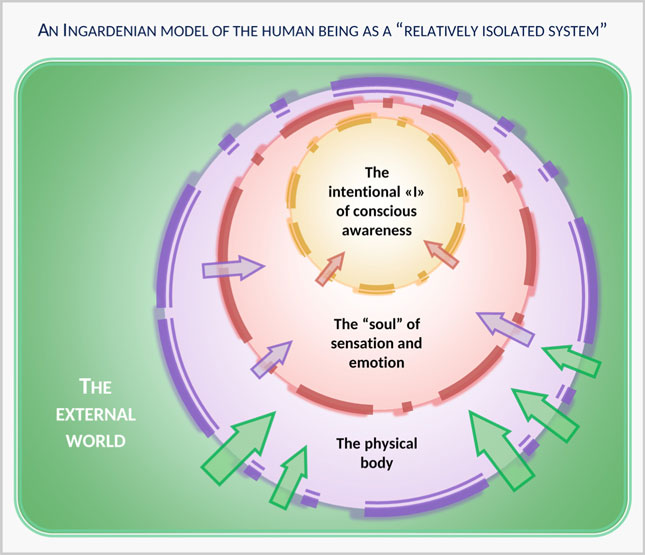Gladden, Matthew E. “Cognition of the Virtual: An Ingardenian Systems-Phenomenological Account of the Perception and Understanding of Virtual Objects.” Presentation at the 5th Avant Workshop, on “Inspirations: 20th-century Philosophy and Contemporary Studies on Cognition.” Institute of Philosophy and Sociology, Polish Academy of Sciences, Warsaw. October 12, 2018.
 Abstract. As immersive, interactive virtual reality (VR) technologies grow increasingly sophisticated, contemporary philosophers like Rabanus have attempted to formulate phenomenological analyses of the experiences they offer. We would argue, though, that one of the richest phenomenological approaches for interpreting the virtual objects perceived and understood through the use of VR systems was pioneered in the 20th century by Roman Ingarden, who in “O dziele architektury” hypothesized the future development of what would now be described as “VR systems” and explored our potential cognition of virtual objects.
Abstract. As immersive, interactive virtual reality (VR) technologies grow increasingly sophisticated, contemporary philosophers like Rabanus have attempted to formulate phenomenological analyses of the experiences they offer. We would argue, though, that one of the richest phenomenological approaches for interpreting the virtual objects perceived and understood through the use of VR systems was pioneered in the 20th century by Roman Ingarden, who in “O dziele architektury” hypothesized the future development of what would now be described as “VR systems” and explored our potential cognition of virtual objects.
An Ingardenian approach can incorporate: (1) Ingarden’s analysis of the stratification of artistic products, which distinguishes different types of cognitive access afforded to the physical fundament and intentional artistic, aesthetic, and cultural objects associated with a virtual object, and (2) Ingarden’s account (grounded in systems theory) of the human being as an emergent whole comprising a physical body, sensory-emotional “soul,” and intentional «I». This framework enables us to: (1) distinguish cognition of virtual objects from that of “real” objects, dreams, hallucinations, and the fictional worlds experienced when reading novels, and (2) explain the cognitive shift that occurs when someone immersed in a virtual environment comes to “forget” that the objects encountered there are “only” virtual.